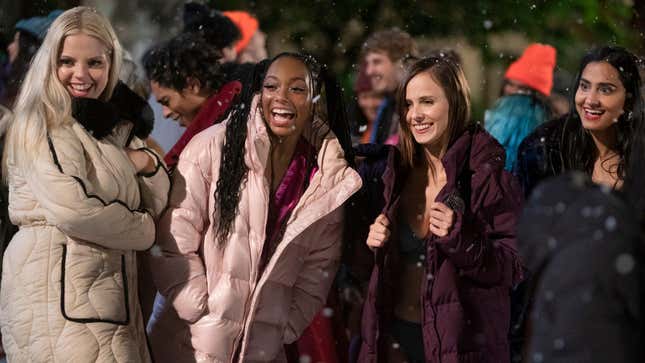‘The Sex Lives of College Girls’ Is Back and Messy as Ever
Season 2 of HBO Max’s hit comedy is shaping up to be nice and fun, and we hardly get nice, fun things anymore.
EntertainmentTV

Your favorite Essex University sluts (I’m using this in the loving, reclaimed sense of the word, don’t fight me) are back navigating sex, relationships, friendship, and the curvature of frat boys’ abdominals to kick off their second semester of college.
Season 2 of HBO Max’s hit comedy
The Sex Lives of College Girls, from co-creators Mindy Kaling and Justin Noble, dropped its first two episodes on Thursday. Though the streamer plans to drop the remaining eight episodes leading up to the season finale on December 15, so far, the second season is shaping up to be nice and fun, and we hardly get nice, fun things anymore.
-

-

-

-

-

-

-

-

-

-

-

-

-

-

-

-

-

-

-

-

-

-

-

-

-

-

-

-

-

-

-

-

-

-

-

-

-

-

-

-








































